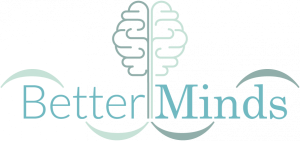One of the most well-known forms of therapy, cognitive behavioural therapy training is an evolving, developing practice that builds on a systematic approach to modify an individual’s thinking. Breaking down wonky thinking patterns, cognitive behavioural therapy training aims to create more sustainable structures, to help your clients deal with life on life’s terms.
Evolving practices: a potted history
As a practice, cognitive behavioural therapy training has gathered steam, ideologies and experience since 1895 when Pavlov was finding curious ways to make his dogs salivate on cue. Cognitive behavioural therapy training began way back with the development of Behaviourism, the idea that all behaviours can be conditioned, and our responses to situations are a direct result of the environmental factors we come across. Rather than avoidance of the situations causing pain, first wave CBT focuses on dissolving negative associations, to make individuals behave in a more effective way – Skinner, in some ways, was your original Supernanny.
Second wave CBT placed more attention on an understanding of the flawed thinking that persists in creating a negative perception of the world. Addressing your clients’ flawed thinking with cognitive therapy breaks down the irrational beliefs that make negative thoughts come into play, leading to a more healthy perspective of the issues that cause spiralling consequences.
Finally, Third wave cognitive behavioural therapy training goes one step further, encouraging individuals to recognise and accept the discomfort that they are feeling, and move forward regardless. We all feel our feelings for a reason.
This type of cognitive training helps you cascade the tools and techniques to your clients that help them connect with the way they’re feeling, the world around them and the contexts that have made them feel that particular way. Engaging with a more mindful approach to life, reflecting on experiences rather than instantly reacting to them puts you on the path to a more fulfilled life. Better understanding yourself helps you better live by your values, consistently engaging with the thoughts, feelings and actions that are the most important to you and also gives you the tools and techniques to help you and those around you.
Why make use of cognitive behavioural therapy training?
As well as being one of the most recognised forms of effective therapy, cognitive behavioural therapy can be adapted and fit to every individual your team works with. Every single one of us is motivated by a different purpose; we are all human, and all come across the same challenges, opportunities and variety of directions life presents to us. CBT training builds on these very human situations to offer your team a range of tools and techniques they can make use of to steer their clients in the right direction. Working to change the perspective of our thoughts, feelings, behaviours and physical effects of those behaviours, cognitive behavioural therapy training helps your team cascade the power of a better experience. In this way, their clients can trust that they’re making the right direction, leaving behind the consequences of a negative learning experience.
At its core, cognitive behavioural therapy training is built on past learnings and methods that have come before, giving your clients the tools they need to take back control of their thoughts and feelings on their own terms, to live by their values in a manner that helps, not hinders.
Scientific practice and human nature go hand in hand. Our CBT training courses give your team the tools they need to deliver the most effective care. Take a look at our training courses or get in touch for techniques that really work.

